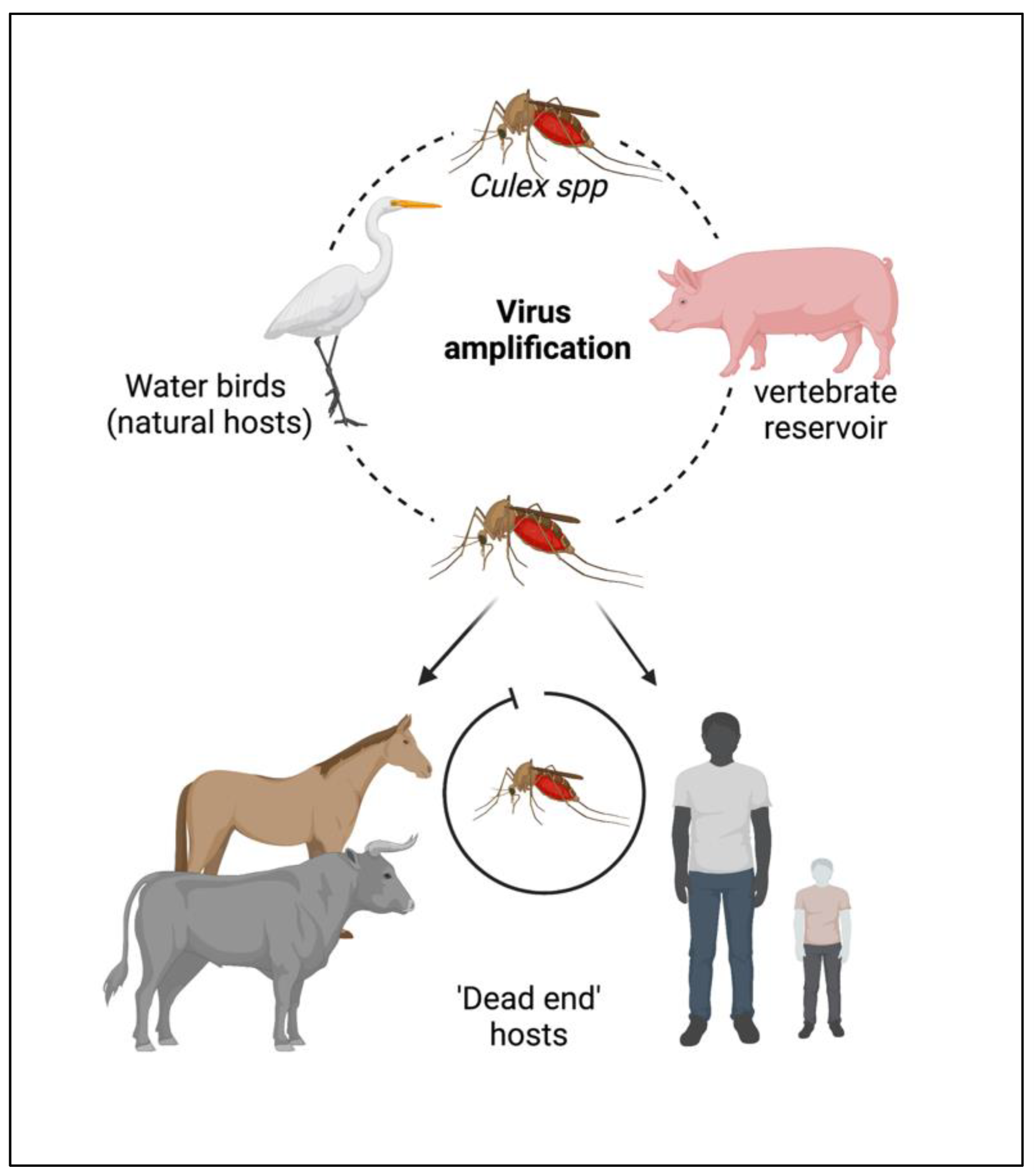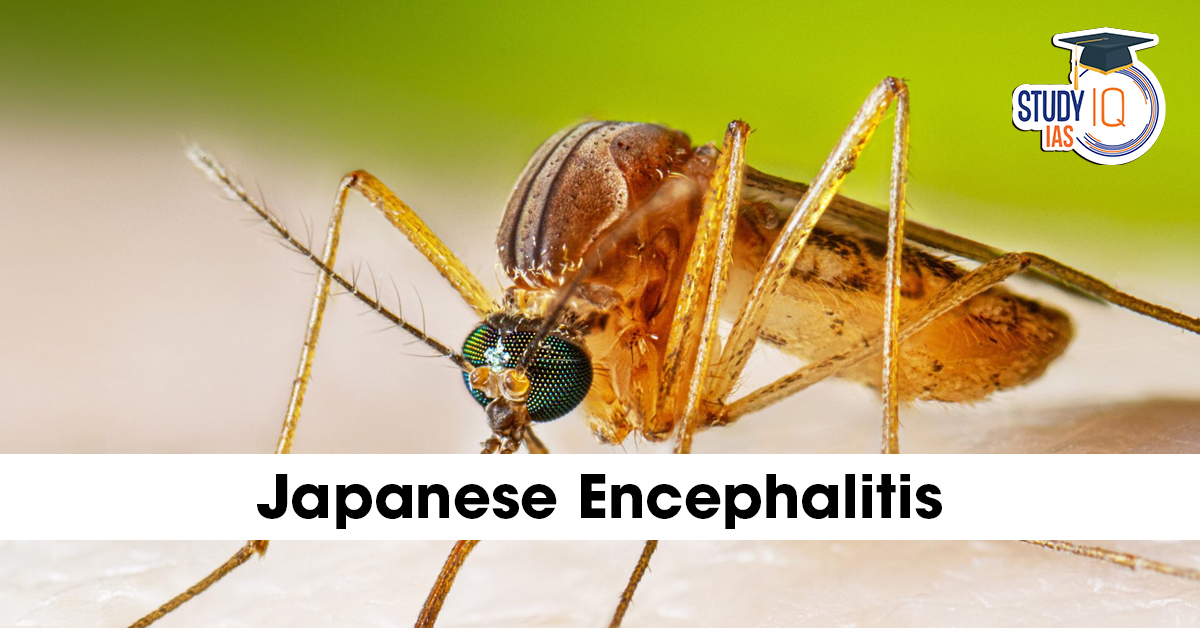Context: Japanese Encephalitis vaccination expanded in Tamil Nadu.
Japanese Encephalitis
- What it is: A viral disease caused by the Japanese Encephalitis Virus (JEV), belonging to the Flavivirus genus (same family as dengue and yellow fever).
- It primarily affects the central nervous system and can cause inflammation of the brain (encephalitis).

Transmission
- Spread through the bite of infected Culex mosquitoes (mainly Culex tritaeniorhynchus).
- Humans are accidental hosts; the main virus cycle occurs between mosquitoes, pigs, and wading birds.
Geographic Spread
- Found in many parts of South and Southeast Asia and the Western Pacific.
- In India, it is endemic in states like Uttar Pradesh, Bihar, Assam, Odisha, and Tamil Nadu.
Symptoms
- Most infections are asymptomatic or mild (fever, headache).
- Severe cases may cause high fever, neck stiffness, seizures, coma, and brain inflammation, with risk of death or permanent neurological damage.
Prevention and Control
Vaccination is the most effective preventive measure.
- Vector control (reducing mosquito breeding in paddy fields, water bodies).
- Protecting pigs from mosquito exposure, as they act as amplifying hosts.
- Public awareness and early diagnosis.


 Advanced Air Defence Radars: Types, Comp...
Advanced Air Defence Radars: Types, Comp...
 Ion Chromatography, Working and Applicat...
Ion Chromatography, Working and Applicat...
 Broadly Neutralising Antibodies (bNAbs):...
Broadly Neutralising Antibodies (bNAbs):...

























